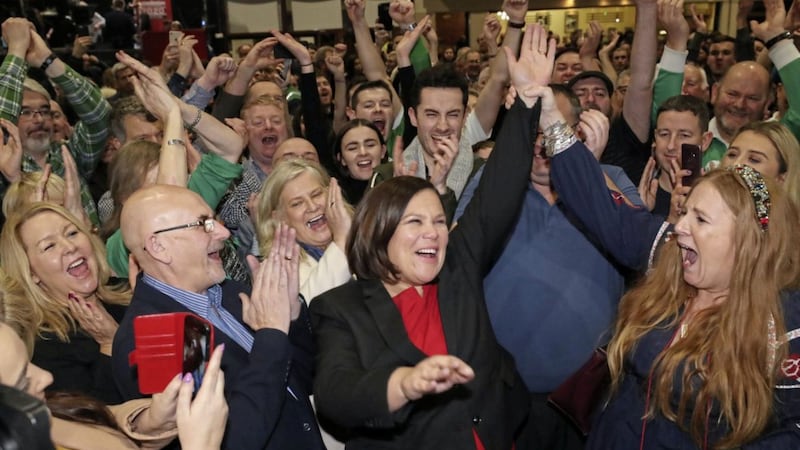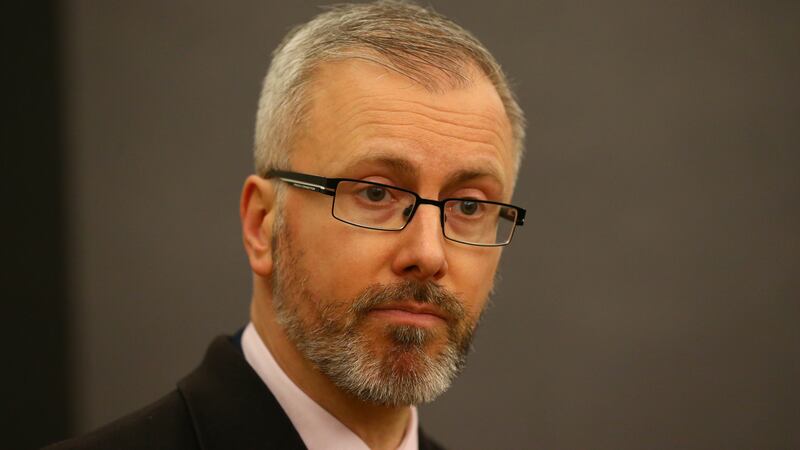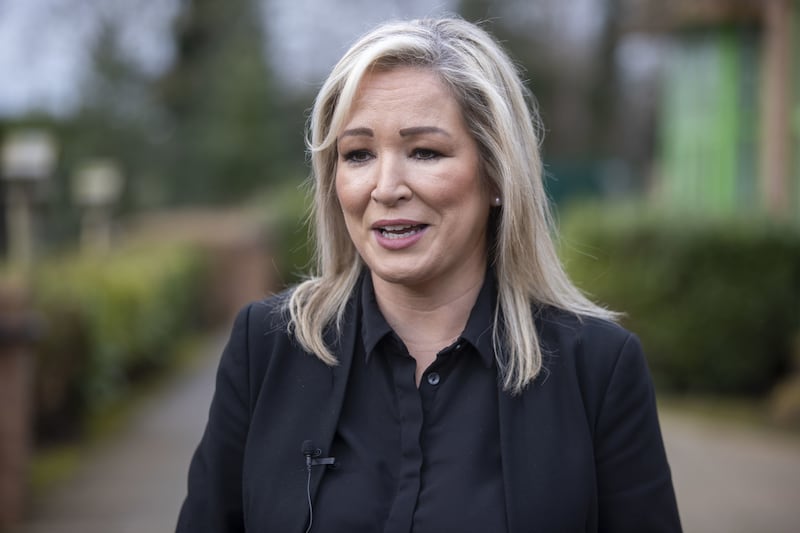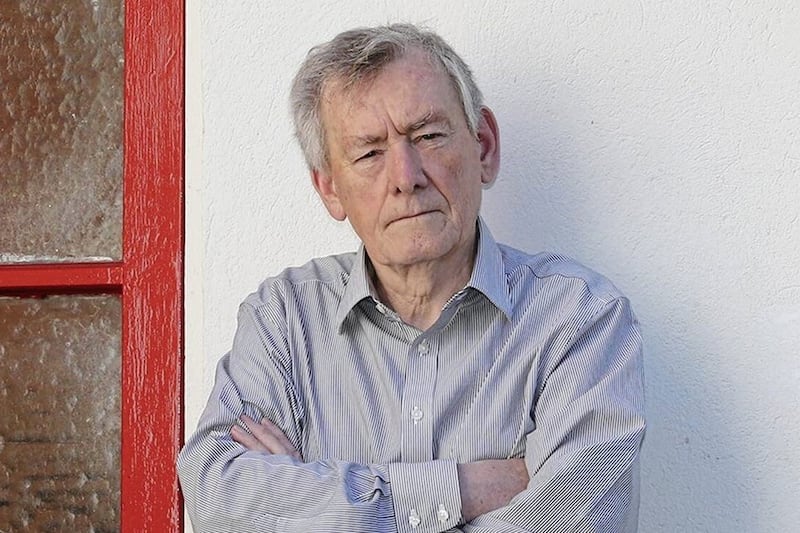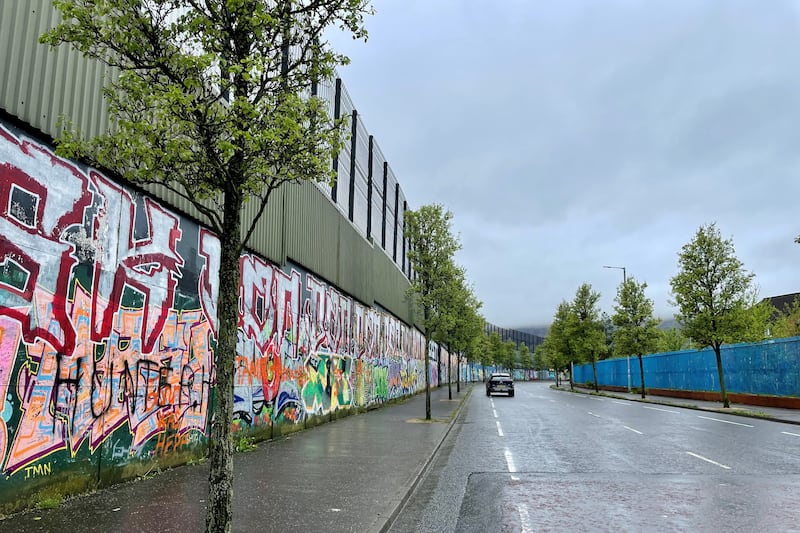A minority Sinn Fein-led Irish government may not last long but it could still achieve progress on key domestic issues, one potential junior coalition partner has said.
Solidarity/People Before Profit TD Richard Boyd Barrett said Mary Lou McDonald will struggle to find enough like-minded allies to reach the 80-seat threshold required for a majority in the Dáil.
But Mr Boyd Barrett said it was still worth "exploring" the possibility of a minority administration.
Such a government would require an understanding with either Fianna Fáil or Fine Gael, through some form of confidence and supply arrangement, that would see them abstain on key votes from the opposition benches.
Senior Sinn Féin representatives are set to hold talks with smaller parties today as they assess the viability of its desired government of the left.
Sinn Féin would need to secure the support of the Greens, Labour, the Social Democrats and Solidarity/People Before Profit, and a range of independent TDs, to form such an administration.
Asked about the prospects of a minority Sinn Féin-led government, Mr Boyd Barrett said: "It wouldn't be sustainable for very long but I still think it's worth exploring if we could do something to urgently address the housing crisis, some of the problems in the health service with the desperate waiting lists, some of the issues around climate change and the cost of living.
Read more:
- DUP's Sammy Wilson and Sinn Féin's John O'Dowd clash on Twitter after Republic's election
- New Dublin government could see Dáil speaking rights for Northern Ireland MPs
"I think anything that could give expression and delivery to the sentiment that people expressed at the ballot box during the election would be worth exploring and I am absolutely keen to do it and People Before Profit are absolutely keen to try to do that."
Mr Boyd Barrett told RTE's Morning Ireland his party was keen to talk with Sinn Féin and other left wing parties about the potential of forming a government together.
"We very much want to see a left government and we were the first to articulate that as a possibility at the outset of this campaign and I think it resonated with huge numbers of people that it was possible to break the cycle of Fianna Fáil/Fine Gael rule and open the way for a government of the left, so we're delighted there's been a big shift in Irish politics towards the left and we want to explore with other parties of the left, or who put forward left wing policies, the possibility of forming such a government, but the raw numbers would suggest we're a bit short of a majority."
Many believe it will be impossible to form a government without the involvement of one of either Fianna Fáil or Fine Gael, the two long-time big beasts of Irish politics.
A coalition of Fianna Fáil, Sinn Féin and the Green Party - which ended with 12 seats - is seen as a potentially more realistic option.
Another permutation could see the exclusion of Sinn Féin, with Fine Gael and Fianna Fáil entering power together in a so-called "grand coalition" with another smaller party or grouping.
Fianna Fáil could also potentially seek to form a minority government with several of the smaller parties - an administration that would require a confidence and supply deal with Fine Gael on the opposition benches.
That would reverse the landmark pact struck in 2016 that saw Fianna Fáil, as the main opposition party, sustain the last Fine Gael-led minority government in power.
With so much uncertainty about the make-up of the next government, another general election cannot be ruled out.
Fianna Fáil emerged from Saturday's election as the largest party by the narrowest margin over the surging Sinn Féin.
Micheal Martin's party finished with 38 seats to Sinn Féin's 37 at the end of two days of counting.
But given the Fianna Fáil speaker was re-elected without contest, both parties essentially "won" the same number of seats.
Taoiseach Leo Varadkar's Fine Gael was the big loser, recording the second-worst result in its history, winning only 35 seats having entered the campaign as the largest party on 47.
Despite being edged in seat numbers, Sinn Féin was undoubtedly the party with most to celebrate, having smashed Ireland's long-standing two-party system.
Mary Lou McDonald's party triumphed in the popular vote and may have won many more seats - potentially an additional 11 - if it had fielded more candidates in the landmark contest.
As such, momentum is behind her in taking the first steps in what could be a long and tortuous process to form a new government.
She has predicted she could be Ireland's next taoiseach.
Despite receiving the most first preference votes, Sinn Fein's place in the next government is not guaranteed.
All three major parties are far short of the 80 seats required for a majority so, barring another election, some form of coalition is inevitable.
Either Fianna Fáil or Fine Gael may be forced to backtrack on long-standing pledges never to do business with Sinn Féin.
There appear to be differing views within Fianna Fáil, with some members remaining opposed to any alliance with Sinn Fein and others more open to the prospect.
Mr Varadkar has maintained his pre-election stance and ruled out any Fine Gael/Sinn Féin coalition.
Sinn Féin received 24.5% of the vote share on first preference in the election, Fianna Fáil got 22.2% and Fine Gael 20.9%.
The final breakdown of the 160 seats was Fianna Fáil 38, Sinn Féin 37, Fine Gael 35, Greens 12, Labour 6, Social Democrats 6, Solidarity/People Before Profit 5, Aontu 1, Independents4Change 1 and independents 19.
Read more:
- DUP's Sammy Wilson and Sinn Féin's John O'Dowd clash on Twitter after Republic's election
- New Dublin government could see Dáil speaking rights for Northern Ireland MPs
